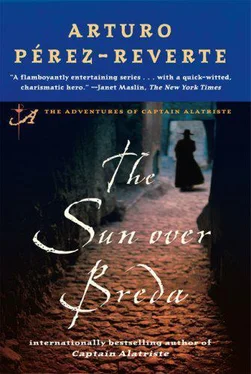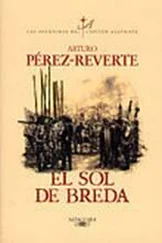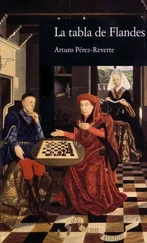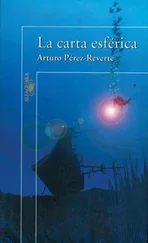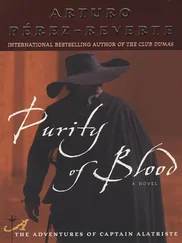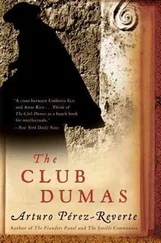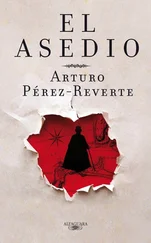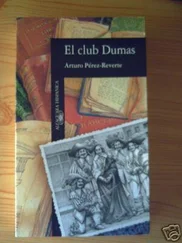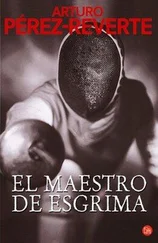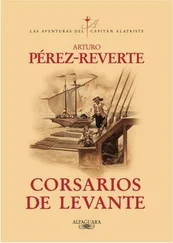Arturo Pérez-Reverte - The Sun Over Breda
Здесь есть возможность читать онлайн «Arturo Pérez-Reverte - The Sun Over Breda» весь текст электронной книги совершенно бесплатно (целиком полную версию без сокращений). В некоторых случаях можно слушать аудио, скачать через торрент в формате fb2 и присутствует краткое содержание. Жанр: Старинная литература, на английском языке. Описание произведения, (предисловие) а так же отзывы посетителей доступны на портале библиотеки ЛибКат.
- Название:The Sun Over Breda
- Автор:
- Жанр:
- Год:неизвестен
- ISBN:нет данных
- Рейтинг книги:5 / 5. Голосов: 1
-
Избранное:Добавить в избранное
- Отзывы:
-
Ваша оценка:
- 100
- 1
- 2
- 3
- 4
- 5
The Sun Over Breda: краткое содержание, описание и аннотация
Предлагаем к чтению аннотацию, описание, краткое содержание или предисловие (зависит от того, что написал сам автор книги «The Sun Over Breda»). Если вы не нашли необходимую информацию о книге — напишите в комментариях, мы постараемся отыскать её.
The Sun Over Breda — читать онлайн бесплатно полную книгу (весь текст) целиком
Ниже представлен текст книги, разбитый по страницам. Система сохранения места последней прочитанной страницы, позволяет с удобством читать онлайн бесплатно книгу «The Sun Over Breda», без необходимости каждый раз заново искать на чём Вы остановились. Поставьте закладку, и сможете в любой момент перейти на страницу, на которой закончили чтение.
Интервал:
Закладка:
Niccolò Machiavelli had already written that the courage of our infantry grew out of necessity. As the Florentine writer acknowledged, quite against his pleasure, for he could never bear the Spanish, “Fighting in a strange land, and seeing themselves, absent the possibility of fleeing, forced to die or conquer, makes them very good soldiers.” Applied to Flanders, that is absolutely true: there were never more than twenty thousand Spaniards in that land and never more than eight thousand together in one place. But that was the impetus that allowed us to be masters of Europe for a century and a half: knowing that only victories kept us safe among hostile peoples and that if defeated we had nowhere we could reach on foot. That was why we fought to the end with the cruelty of our ancestors, the courage of men who expect nothing, the religious fanaticism and insolence that one of our captains, don Diego de Acuña, expressed better than anyone in his famous, passionate, and truculent toast:
To Spain; and may he who wishes to defend her die an honorable death, and may he who is traitor to her be dishonored to his last breath; may no cross mark his remains, may his burial ground remain unblessed, and may he lack a loyal son to close his eyes in Christian rest.
As I was telling Your Mercies, the morning that Captain Bragado made an inspection visit to the advanced posts where his bandera was quartered, it was raining down in buckets. The captain was from León, in the Bierzo district. He was a large man, about six feet tall, and to get him through the mud and mire he had somewhere requisitioned a Dutch workhorse, a large animal with strong legs appropriate for its burden. Diego Alatriste was leaning against the window, watching the rivulets of rain sliding down the thick glass panes, when he saw his captain coming along the dike on horseback, his sodden hat brim drooping from the unceasing rain and a waxed cape over his shoulders.
“Warm a little wine,” Alatriste said to the woman at his back.
He said it in an elementary Flemish— “Verwarm wijn” were his words—then continued to watch through the window as the woman poked the miserable peat fire, then set atop the stove a tin jug she took from the table where a few bread crusts and boiled cabbage were being dispatched by Copons, Mendieta, and the others. Everything looked dirty. Soot from the stove had blackened the wall and the ceiling, and the smell of bodies too long enclosed within the four walls of the house and the odor of dampness filtering through the beams and roof tiles could have been cut with any of the daggers or swords scattered around the room among harquebuses, goatskin buffcoats, heavy outdoor gear, and dirty clothing. It smelled of barracks, of winter, and of misery. It smelled of soldiers and of Flanders.
The grayish light sifting through the window accentuated the scars and hollows on Diego Alatriste’s unshaven face, making the fixed clarity of his eyes even colder. He was in his shirtsleeves, with his doublet thrown over his shoulders and two harquebus cords knotted below his knees to hold up the legs of his cobbled leather boots. Without moving from the window, he watched as Captain Bragado got off his horse, pushed open the door, and then, shaking the water from his hat and cape, came inside with a pair of oaths and a “By the good Christ,” cursing the rain, the mud, and all of Flanders.
“Go on eating, men,” he said, “since you have something to eat.”
The soldiers, who had half-risen, went back to their meager rations, and Bragado, whose clothing began to steam as he neared the stove, accepted the piece of hard bread and bowl with the last of the cabbage offered him by Mendieta. The captain studied the woman closely as he accepted the jar of warm wine she put into his hands, and after warming his fingers on the metal, he drank with short sips, casting sideways glances at the man who had not moved from the window.
“By God, Capitán Alatriste,” he ventured after a bit. “You are not badly quartered here.”
It was extraordinary to hear the captain of the unit address Diego Alatriste as Capitán so naturally, which proves to what point Alatriste and his honorary rank were known to all and respected even by his superiors. As Carmelo Bragado spoke, he turned covetous eyes toward the woman, who was some thirty years old and blonde like nearly all the women of her land. She was not particularly pretty: Her hands were reddened by work and her teeth were uneven, but she had fair skin, broad hips beneath her skirts, and full breasts that threatened to overflow the bodice tightly laced in the style of the women painted in that era by Peter Paul Rubens. In sum, she had the look of a healthy goose that Flemish countrywomen tend to have when they are not overly ripe. And all this—as Captain Bragado and even the most dimwitted recruit could have divined merely by observing the way the girl and Diego Alatriste ignored each other in public—was much to the displeasure of her husband, a well-off, fiftyish peasant with a sour face. He roamed about, forcing himself to be subservient to the feared, gruff foreigners he hated with all his soul but that fortune had sent him with a billeting warrant. A husband who had no choice but to swallow his anger and despair each night when after hearing his wife slip silently from his side, he listened to the barely muffled moans in the crunching corn-husk pallet where Alatriste slept. How that had come about is something that belongs to the private life of the couple. In any case, the husband received certain advantages in exchange: His house, his property, and his neck were saved, something that could not be said in every place Spaniards were quartered. Cuckolded he may have been, but at least his wife was sneaking off to one man, and one of high rank at that, and not to several, or by force. After all, in Flanders, as in any place and any time of war, a man who does not find ways to console himself is miserably discontented. The greatest solace for nearly everyone was surviving, and that husband, whatever else, was alive.
“I bring orders,” Captain Bragado said, “for an incursion along the Geertruidenberg road. Without too much killing. Only to pry loose a little information.”
“Prisoners?” asked Alatriste.
“Two or three would not go amiss. Apparently our General Spínola believes that the Dutch are preparing to send help to Breda by boat, taking advantage of the rising waters from the rains. It would be helpful if a few men went a league in that direction to confirm the rumor. Done quietly, of course. Discreetly.”
Quietly or with bugles blaring, a league through that rain and the mud of the roads was asking a lot, but none of the men showed any surprise. They knew that the same rain kept the Dutch in their bunkers and trenches and that they would be snoring like pigs while a handful of Spaniards slipped by beneath their noses.
Diego Alatriste stroked his mustache. “When do we leave?”
“Now.”
“Number of men?”
“The whole squad.”
That brought a curse from one of the men at the table, and Captain Bragado whirled around, eyes shooting sparks. All heads were lowered, all eyes cast down. Alatriste, who had recognized the voice of Curro Garrote, sent the Malagüeño a reproachful look.
“Perhaps,” Bragado said very slowly, “one of these soldiers has something to say on the subject.”
He had set the jar of wine down on the table without finishing it and had placed his hand to the hilt of his sword. His strong yellow teeth were gritted beneath his mustache. The effect was extremely disagreeable: They looked like the teeth of a bulldog ready to attack.
“No one has anything to say,” Alatriste replied.
Читать дальшеИнтервал:
Закладка:
Похожие книги на «The Sun Over Breda»
Представляем Вашему вниманию похожие книги на «The Sun Over Breda» списком для выбора. Мы отобрали схожую по названию и смыслу литературу в надежде предоставить читателям больше вариантов отыскать новые, интересные, ещё непрочитанные произведения.
Обсуждение, отзывы о книге «The Sun Over Breda» и просто собственные мнения читателей. Оставьте ваши комментарии, напишите, что Вы думаете о произведении, его смысле или главных героях. Укажите что конкретно понравилось, а что нет, и почему Вы так считаете.
